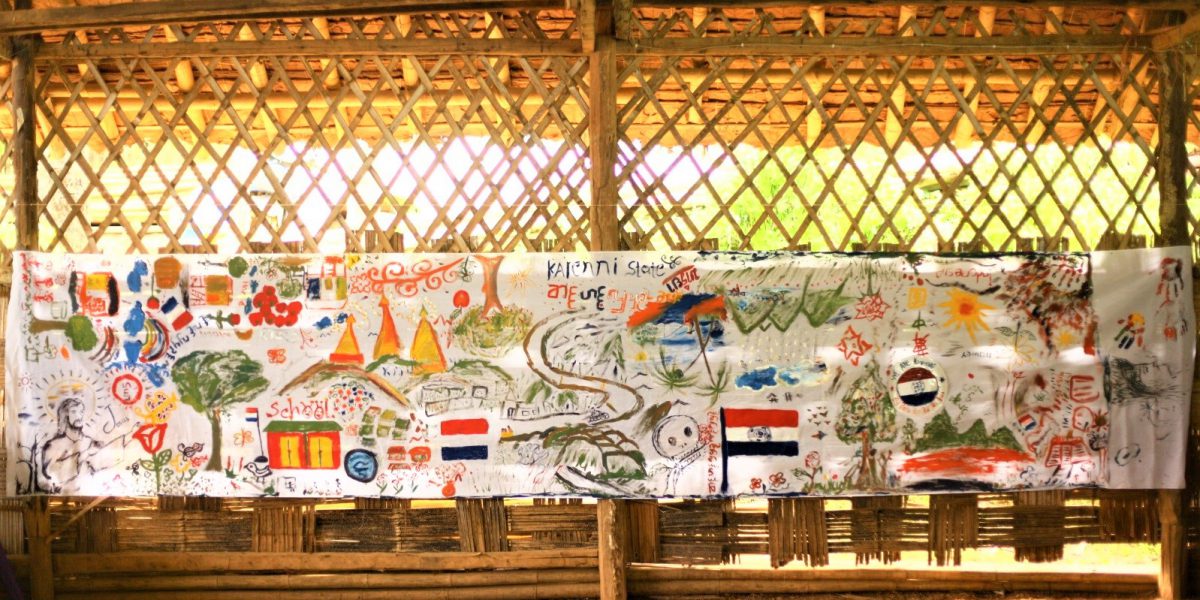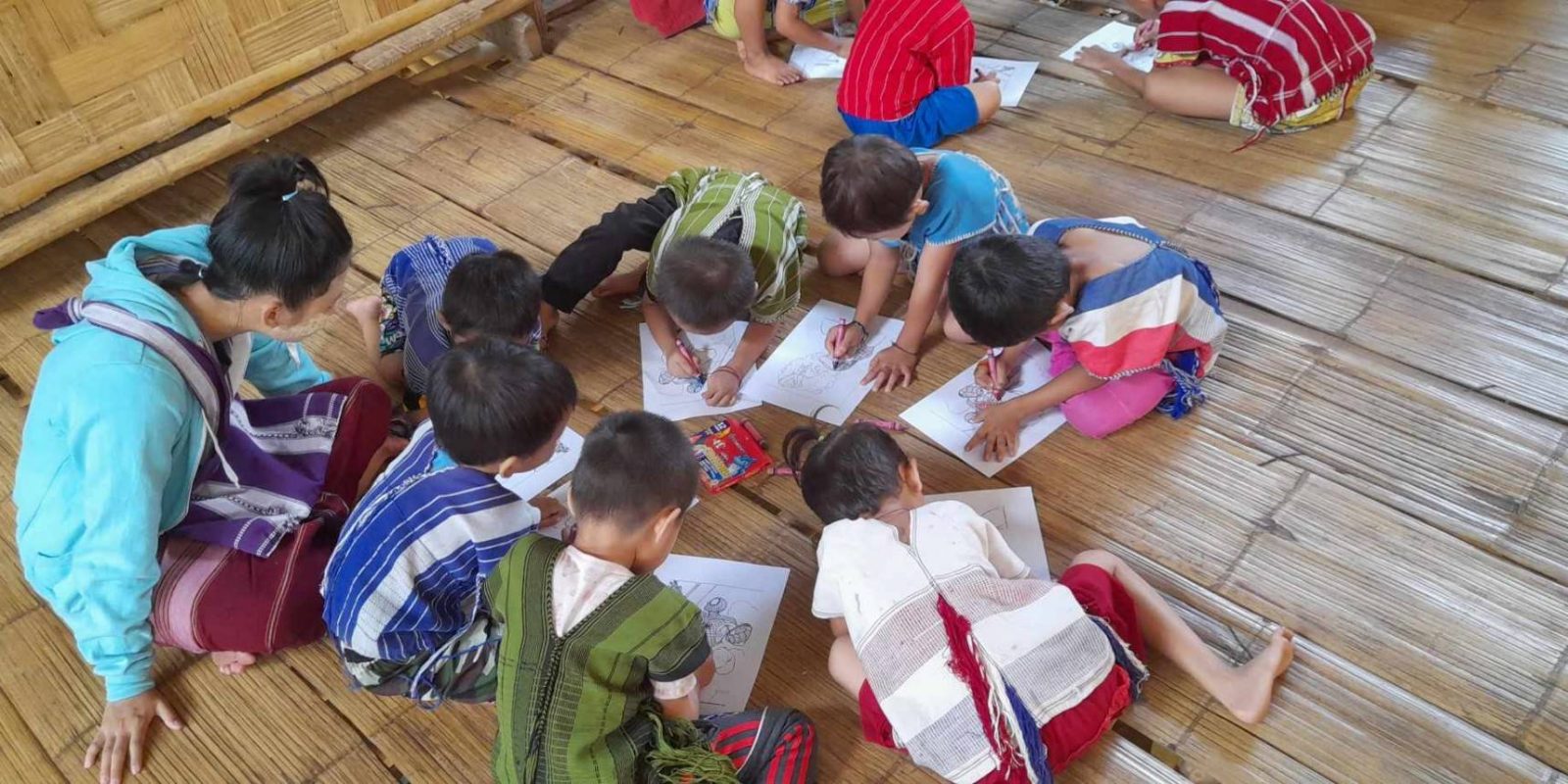Thailand: “Inter-generational Perspectives: Our land, our home, our future”
04 December 2018|Maria Jose Pinzon, English Subject Coordinator

Mae Hong Son, 4th December 2018 – The fresh smell of the paint, the colourful paintings hung on the walls, and the confidence of the participants. All of these elements were concentrated in one event, a workshop called “Inter-generational Perspectives: Our land, our home, our future”, that was held during the last week of May by the Jesuit Refugee Service (JRS) in the Karenni refugee camp of Ban Mae Nai Soi in Mae Hong Son, Thailand.
It has been 30 years since the Ban Mae Nai Soi camp first opened on the Thai-Myanmar border. In 2018, it is still home to more than 9300 persons. As talks of repatriation become more frequent, since the first voluntary repatriation in 2016, JRS has seen the need to increase its Peace and Reconciliation efforts in order to better equip the refugees for their future. The workshop intended to boost an inter-generational exchange in the camp with the belief that every member of the community has a role to play in the construction of a peaceful future for the Karenni.
For this workshop, JRS partnered with Juliana Bohorquez, a Colombian artist and activist, and her team to develop and co-facilitate the activities. The group of participants was really representative as it gathered individuals from all walks of life: student leaders, out of school youth and adults who support the JRS Pastoral and Accompaniment project. All in all, 29 participants between the ages of 14 and 53 came together to share, listen, create and empower.
During the four-day workshop, the discussions and activities focused on increasing awareness of social memory, re-defining the meaning of home and territory and encouraging self-reflection on the meaning of participative leadership and the role of each individual in the construction of a peaceful future.
The workshop used art to encourage and channel very productive discussions. Throughout this process, the participants created collective paintings depicting their land and their future. Using earth clay and mixed media, participants reflected their vision of home and created a village that included them all. Finally, on the last day, participants worked together to develop a message to the world: “We all deserve peace, a life without weapons or violence, and we must have access to an education that is focused on future and life instead of past and hate”. Participants committed themselves to becoming agents of peace by sharing their experience and discussions among their peers.
After the workshop, the artwork has been displayed at various World Refugee events in the camp as well as in the Mae Hong Son municipality to disseminate the message of peace created by the refugees. Currently, the artwork is being displayed at the meeting hall of Camp Committee in Ban Mae Nai Soi camp.
The voluntary repatriation process started in 2016 in a joint effort of the UN Refugee Agency (UNHCR) and the Governments of Thailand and Myanmar. To this day, 164 refugees returned to Myanmar through this process.
Maria Jose Pinzon, English Subject Coordinator – JRS Mae Hong Son


